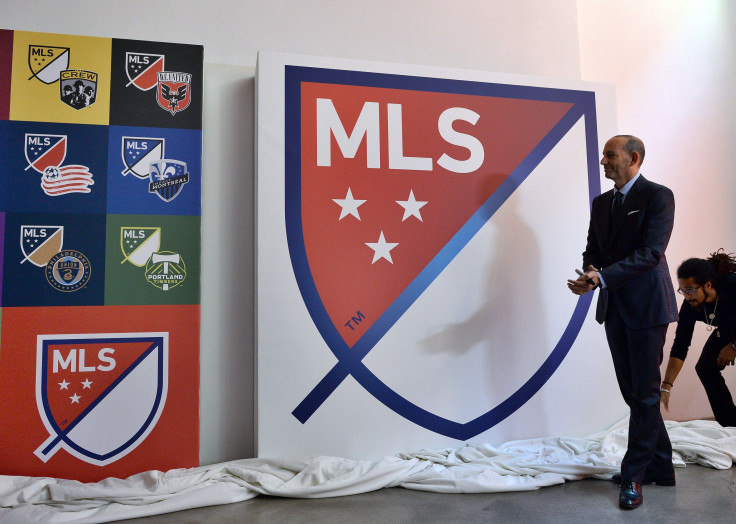MLS News: Commissioner Don Garber Certain League Will Become One Of World’s Best

BROOKLYN, NY -- Commissioner Don Garber has reaffirmed his belief that Major League Soccer will become one of the world’s top leagues, while hinting that a sale of the Houston Dynamo was close. In his annual State of the Union address, this year given as part of the BlazerCon soccer convention, Garber spoke with enthusiasm that MLS’ 20th season had seen the league take a major step forward.
Citing the signings of star players from abroad in their prime, such as Italy international Sebastian Giovinco and Mexican star Giovani dos Santos, as well as record attendances, Garber said there were plenty of reasons for encouragement. And while he appeared to roll back just a little from his previous prediction that MLS would become one of the world’s premier leagues by 2022, he stated it was just a matter of time.
“I will absolutely assure you whether it’s seven years, or its longer than that, I may or may not be around, this league will be one of the dominant leagues in the world in time,” he said. “It has to be because there’s so many things happening with the soccer movement. You have owners that are coming in that really believe in the sport, broadcasters that do, youth development that’s thriving, players that want to play here from abroad. Our national team coaches aren’t shitting on our league as much as they used to.”
Rather than the top leagues in Europe -- the English Premier League, Germany’s Bundesliga or Spain’s La Liga -- Garber explained that the next league in MLS’ sights as they climb the global ladder was Mexico’s Liga MX. However, he explained that there was still a long way to go.
“It takes us from where we are today, to spending about three times more money that we’re spending now, that’s just to be able to beat the Mexicans on a regular basis,” he stated. “It’s not getting our top teams to spend more, it’s getting our middle teams to spend more so that we’re competitive against these clubs on a day to day basis. And once we get Mexico, then we’ll go to the next level, go to the next level.”
Influenced by the boom and bust of the North American Soccer League in the 1970s, MLS had been particularly careful in its expenditure. And Garber continued to reaffirm his opposition to promotion and relegation, as happens in all of the major European leagues. The league is also unique in the soccer world for having a salary cap, which currently stands at $3.49 million, although with teams allowed three designated players counting outside that figure.
“In our league we’re constantly thinking about how we can we invest as much as we possibly can without threatening the economic viability of the league,” he added. “What it really needs is raising our revenues then trying to generate more money so we can manage a manageable loss so that I can push our owners to spend as much as they possibly can without them saying ‘I cant do this anymore.’”
Garber cited several signs of growth, including MLS breaking the 20,000 barrier for its average attendance for the first time and said that if the level of growth continues that number will grow to 35,000 in the next 10 years.
On the pitch, he stated his belief that the quality of play was on the up, and was now comparable to the level of the second tier in England. However, with the league set to expand from its current 20 teams to 24 teams by 2024, there is a need for more players of a high ability to continue to ensure that the quality on the pitch moves forward rather than back. And with that aim in mind, Garber conceded that there was plenty of room for improvement if U.S. soccer is to produce more talented players.
“The league and the lower leagues and the federation have to get very connected on youth development, because ultimately I’m not sure its delivering the value that we all need -- U17s U20s, U23s have not had great success, so something has got to change,” he said after his address. “And we all need to come together as a sport in this country to try to fix that.”
Closing off by explaining just how far the league has come, Garber recalled a point in 2001 when he was sitting with bankruptcy attorneys and the league was in danger of shutting down. At that point billionaire Philip Anschutz took on the ownership of six teams to help keep the league afloat. That is now down to just two -- the LA Galaxy and a 50 percent stake in the Houston Dynamo. AEG, led by Anschutz, has been looking for a local buyer for their share of the team and Garber stated that a sale for one of his teams would be announced “soon.”
© Copyright IBTimes 2025. All rights reserved.





















